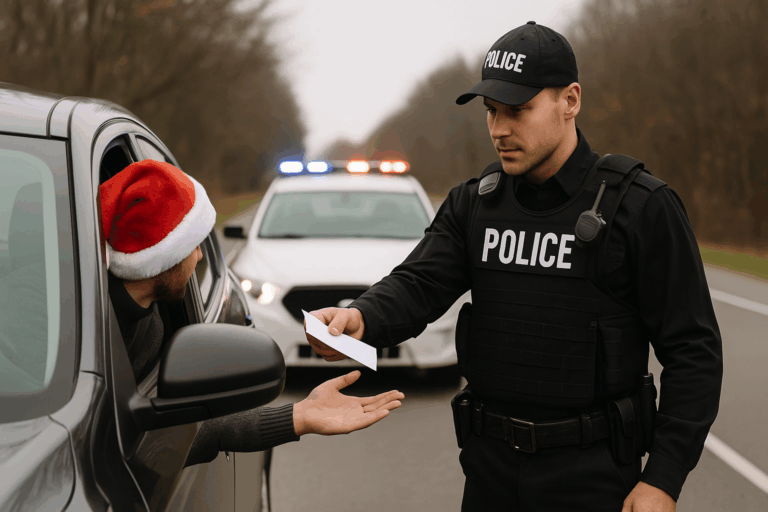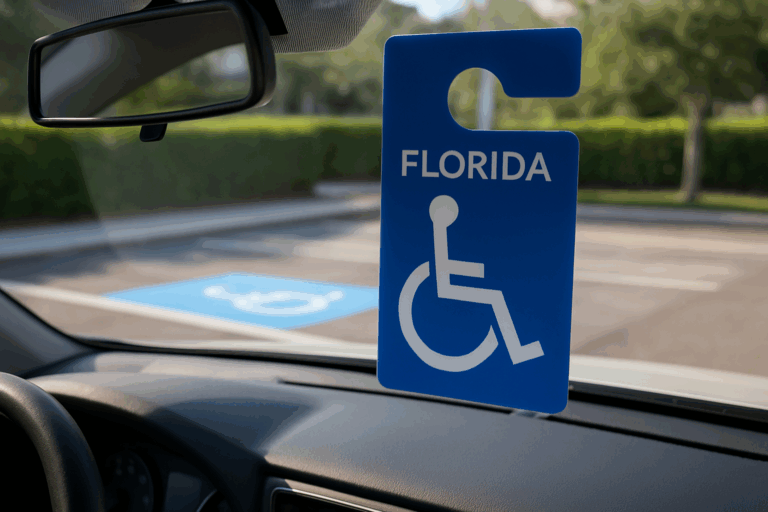By now, just about everyone in Florida has heard about former Tampa Police Chief Mary O’Connor’s recent traffic stop where she was stopped in her golf cart and allegedly used her position to get a pass from the officer. Some of you are probably thinking “I’ve seen golf carts all over Florida roads, aren’t they legal?” The answer is yes if operated correctly. Furthermore, in some cases, they must be registered as a “Low Speed Vehicle.”
When do you need a license plate for a golf cart?
A golf cart doesn’t need to be titled or registered if it’s operated on a golf course and can’t top speeds of 20 mph, according to Florida Highway Safety and Motor Vehicles. They can also be legally driven on roads that are specifically designated for golf carts with a posted speed limit of 30 mph or less. For this reason, many golfing communities have separate golf cart paths for their residents. Once you leave the gated community or golf course, the rules change.
Any golf carts that go between 20 and 25 mph and are driven on streets where the speed limit is 35 mph or less must be registered, titled, insured and operated by a licensed driver, according to FLHSMV, which defines them as low-speed vehicles (LSV).
Don’t Forget Your Low Speed Vehicle Safety Equipment
Additionally, under Florida state law, if one is driven outside of these approved areas, it must have all of the same appropriate registrations and safety equipment in working order just like a regular car. This includes headlights, brake lights and a license plate and a bright orange “safety triangle.” Brush up on the law below:
7) On every slow-moving vehicle or equipment, animal-drawn vehicle, or other machinery designed for use and speeds less than 25 miles per hour, including all road construction and maintenance machinery except when engaged in actual construction or maintenance work either guarded by a flagger or a clearly visible warning sign, which normally travels or is normally used at a speed of less than 25 miles per hour and which is operated on a public highway:
a) A triangular slow-moving vehicle emblem SMV as described in, and displayed as provided in paragraph (b). The requirement of the emblem shall be in addition to any other equipment required by law. The emblem shall not be displayed on objects which are customarily stationary in use except while being transported on the roadway of any public highway of this state.
(b) The Department of Highway Safety and Motor Vehicles shall adopt such rules and regulations as are required to carry out the purpose of this section. The requirements of such rules and regulations shall incorporate the current specifications for SMV emblems of the American Society of Agricultural Engineers.
(8) A violation of this section is a noncriminal traffic infraction, punishable as a nonmoving violation as provided in chapter 318. 7) On every slow-moving vehicle or equipment, animal-drawn vehicle, or other machinery designed for use and speeds less than 25 miles per hour, including all road construction and maintenance machinery except when engaged in actual construction or maintenance work either guarded by a flagger or a clearly visible warning sign, which normally travels or is normally used at a speed of less than 25 miles per hour and which is operated on a public highway
Can I Get A DUI on A Golf Cart?
Yes! Florida law for driving under the influence includes all vehicles including a golf cart. With the growth of communities like The Villages this type of charge has grown over the years. A golf cart DUI can even happen on private property especially if there’s an accident involved.
How common are traffic tickets involving golf carts?
Florida is semi-infamous for headline-grabbing traffic stops involving unorthodox vehicles. However, for the most part, these types of tickets are generally uncommon. It seems most people know the rules and/or stops are generally nearby golf cart-approved neighborhoods so officers let drivers off with a warning. Not following the rules could still result in a major headache as we’ve learned last week, so it’s best to stick to the cart paths unless you have an LSV plate.



